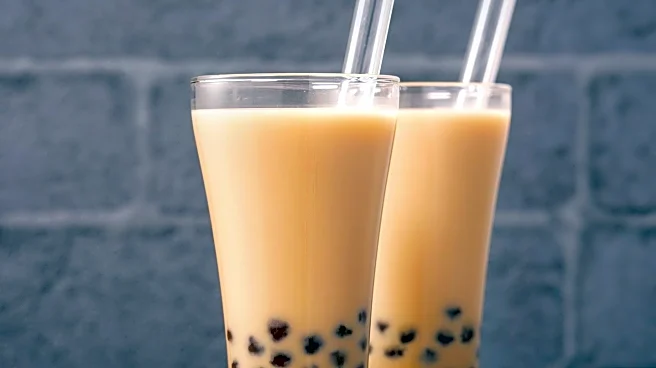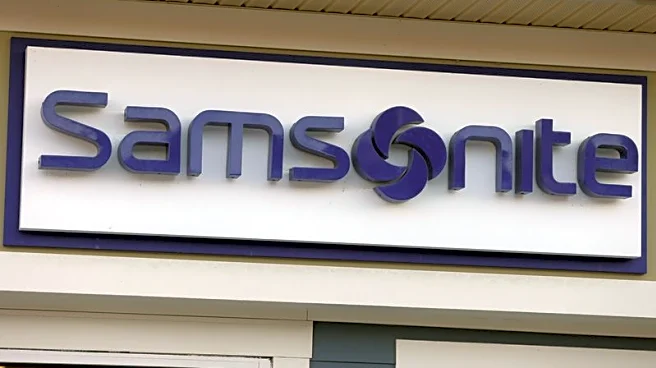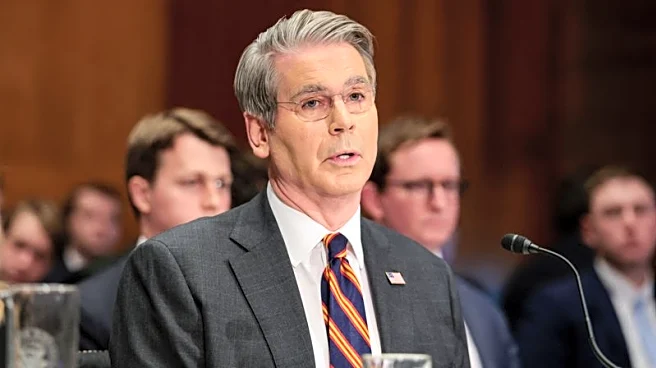What's Happening?
Consumer Reports has conducted safety tests on bubble tea, revealing the presence of lead in tapioca pearls from major chains such as Gong Cha and Kung Fu Tea, as well as packaged boba from Trader Joe’s and Wu Fu Yuan. The tests showed that all samples contained lead, although not at levels that necessitate complete avoidance of the drink. The report suggests treating bubble tea as an occasional treat due to the potential health risks associated with lead exposure, particularly for children and pregnant individuals. Trader Joe’s has discontinued its Instant Boba Kit following the findings, while Wu Fu Yuan has pledged to improve quality control measures. Gong Fu Tea and Gong Cha have not commented on the report.
Why It's Important?
The presence of lead in bubble tea raises significant health concerns, as no amount of lead is considered safe, especially for vulnerable groups like children and pregnant individuals. This revelation could impact consumer behavior, prompting people to limit their consumption of bubble tea and similar products. The findings also highlight the need for stricter quality control and safety standards in the food industry to prevent exposure to harmful substances. Companies involved may face increased scrutiny and pressure to ensure product safety, potentially affecting their market reputation and sales.
What's Next?
Consumer Reports recommends enjoying bubble tea and other treats with potential lead content only occasionally. The report may lead to increased consumer awareness and demand for transparency regarding food safety. Companies might need to implement more rigorous testing and quality assurance processes to address these concerns. Regulatory bodies could also consider revising guidelines to better protect consumers from exposure to heavy metals in food products.
Beyond the Headlines
The discovery of lead in bubble tea underscores broader issues related to food safety and the presence of heavy metals in various food products. It raises ethical questions about the responsibility of companies to ensure the safety of their products and the effectiveness of current regulations in protecting public health. This situation may prompt discussions on the need for more comprehensive food safety standards and the role of consumer advocacy groups in driving change.











